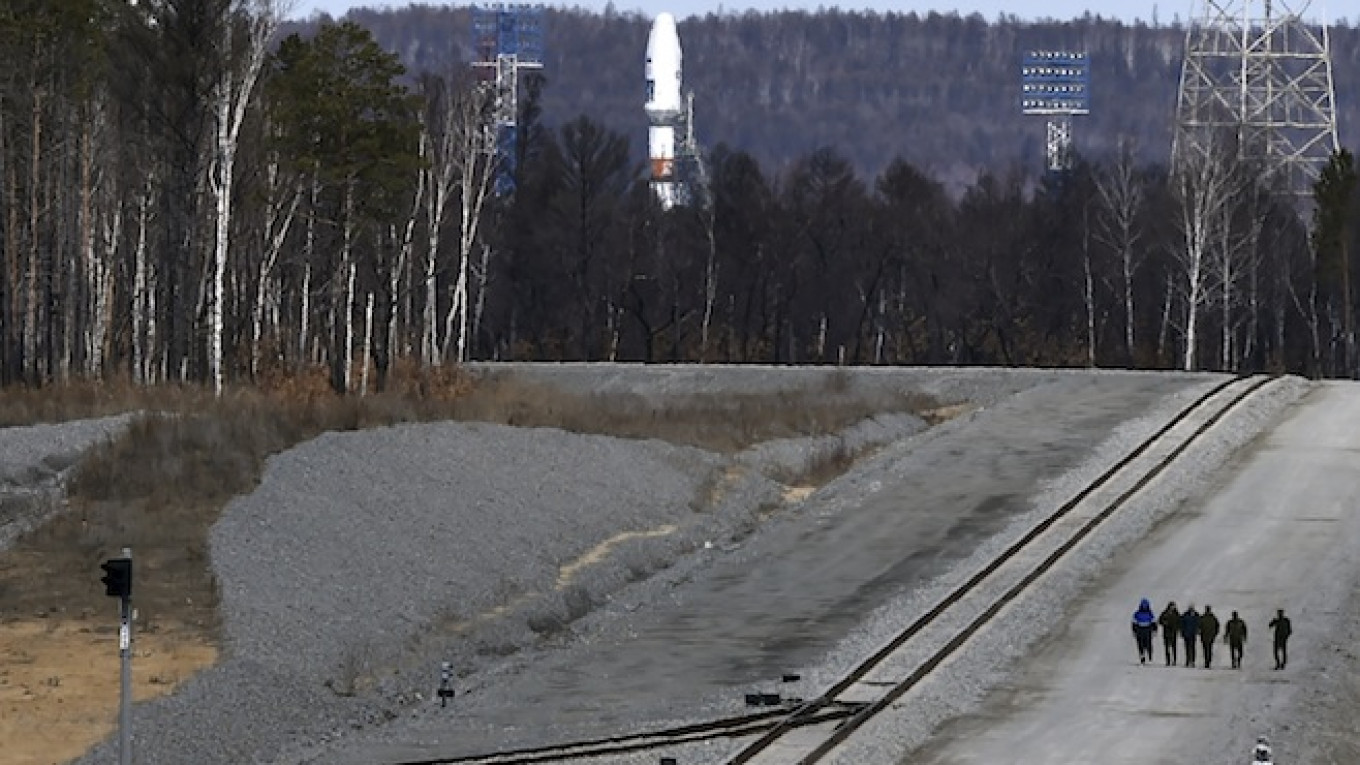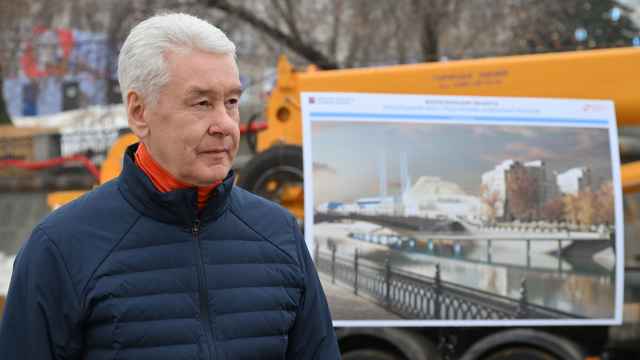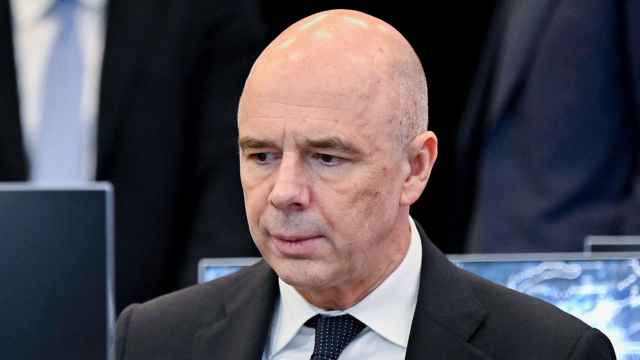The first rocket launch from the new Vostochny Cosmodrome in Russia's Far East was delayed on Wednesday morning after a technical failure one and a half minutes before lift off.
President Vladimir Putin traveled 5,600 kilometers from Moscow to see the maiden flight, but during launch procedures "the automated control system initiated an automatic halt," Igor Komarov, head of the Roscosmos state space corporation, told the TASS news agency.
The launch of the Soyuz 2.1a rocket, which will carry Russian scientific satellites into orbit, has been delayed by 24 hours. Roscosmos ruled out human error in the launch failure.
According to an unidentified space industry source cited by the RIA Novosti news agency, the first launch from may not take place on April 28 either and may be postponed indefinitely.
“If in the near future a decision to drain the fuel tanks of the rocket will be taken, this may mean that the launch will be postponed for an indefinite time until all possible problems are eliminated,” the source was quoted by the news agency as saying.
The Vostochny — or Eastern — Cosmodrome is one of Russia's largest infrastructure mega-projects with a budget of between $4 billion and $6 billion. It will eventually span some 700 square kilometers in the Siberian taiga and include multiple launch platforms, testing and assembly sites, cosmonaut training facilities and a town of 25,000 scientists, engineers and their families.
Vostochny is meant to reduce Russia's dependence on the Soviet-era Baikonur Cosmodrome in Kazakhstan, which Moscow leases from the Kazakh government for $115 million a year.
Since construction began in 2012, the project has been plagued with delays, embezzlement scandals and worker strikes over missed paychecks, prompting Putin to take personal control of the site. The first launch was originally planned for 2015.
A Message from The Moscow Times:
Dear readers,
We are facing unprecedented challenges. Russia's Prosecutor General's Office has designated The Moscow Times as an "undesirable" organization, criminalizing our work and putting our staff at risk of prosecution. This follows our earlier unjust labeling as a "foreign agent."
These actions are direct attempts to silence independent journalism in Russia. The authorities claim our work "discredits the decisions of the Russian leadership." We see things differently: we strive to provide accurate, unbiased reporting on Russia.
We, the journalists of The Moscow Times, refuse to be silenced. But to continue our work, we need your help.
Your support, no matter how small, makes a world of difference. If you can, please support us monthly starting from just $2. It's quick to set up, and every contribution makes a significant impact.
By supporting The Moscow Times, you're defending open, independent journalism in the face of repression. Thank you for standing with us.
Remind me later.






